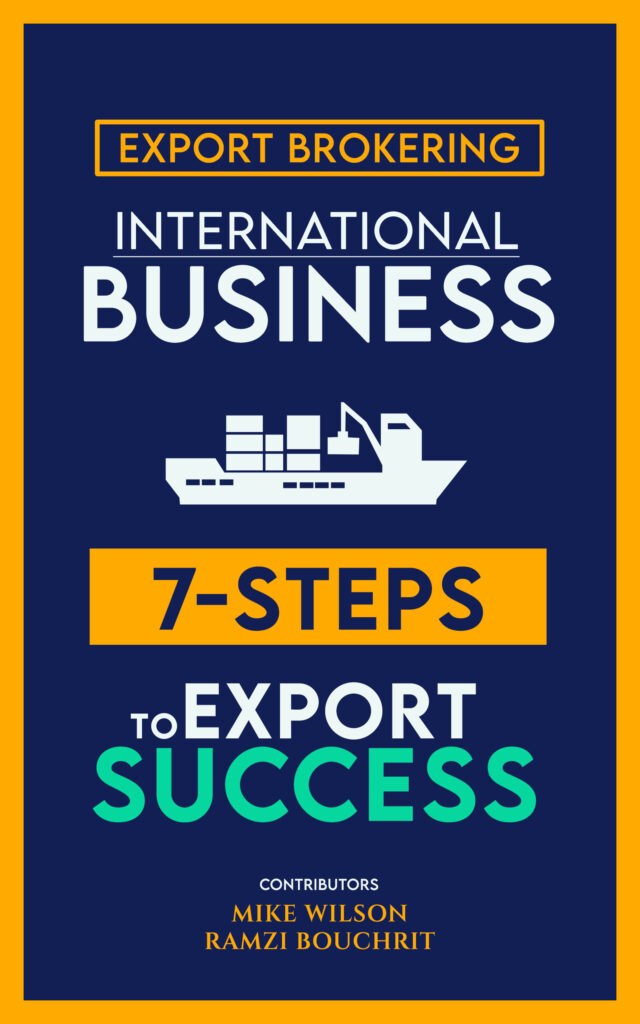The Importance of Continuous Learning in International Trade Brokerage, learn more below!
| Table of Content |
|---|
| Introduction |
| H1: The Value of Continuous Learning in International Trade Brokerage |
| H2: Staying Updated with Industry Trends and Market Dynamics |
| H3: Monitoring Global Trade Policies and Regulations |
| H3: Keeping Abreast of Market Trends and Emerging Opportunities |
| H2: Expanding Knowledge and Expertise |
| H3: Deepening Understanding of International Trade Practices |
| H3: Mastering Financial and Risk Management Strategies |
| H2: Building Credibility and Trust |
| H3: Demonstrating Industry Knowledge and Competence |
| H3: Enhancing Professional Reputation and Networking |
| H2: Adapting to Change and Embracing Innovation |
| H3: Navigating Technological Advancements in Trade |
| H3: Embracing Sustainable and Ethical Trade Practices |
| Conclusion |
| FAQs |
Introduction of The Importance of Continuous Learning in International Trade Brokerage
Continuous learning is a vital component of success in the dynamic field of international trade brokerage. In this comprehensive guide, we will explore the value of lifelong learning for trade brokers and highlight the key strategies and benefits associated with staying updated with industry trends, regulations, and market dynamics. By embracing continuous learning, trade brokers can enhance their expertise, credibility, and business growth in the highly competitive world of international trade.
In this step of “The Export Series” we will show you how to become a successful Import Export (International Trade) broker.

Mr. Ramzi Bouchrit (RB JV Group) has provided us with helpful information based on the different transactions he made with his business partners in the field of the International Trade aka import export. “The Export Series”.
H1: The Value of Continuous Learning in International Trade Brokerage
Continuous learning holds immense value for international trade brokers due to the following reasons:
- Staying Updated: The international trade landscape is ever-evolving, with constant changes in regulations, market trends, and technological advancements. Continuous learning ensures trade brokers are equipped with the latest knowledge and insights, enabling them to make informed decisions and stay ahead of the competition.
- Enhancing Expertise: Lifelong learning allows trade brokers to deepen their understanding of international trade practices, financial management, risk mitigation strategies, and other critical areas. This expanded knowledge base enhances their expertise, enabling them to provide superior services to clients and navigate complex trade scenarios.
- Building Credibility: Continuous learning demonstrates a commitment to professional growth and competence. By staying updated with industry knowledge and trends, trade brokers can build credibility and trust among clients, partners, and stakeholders. Credibility is a key factor in attracting clients and fostering long-term business relationships.
- Adapting to Change: The international trade landscape is subject to rapid changes, including shifts in trade policies, emerging market opportunities, and advancements in technology. Continuous learning equips trade brokers with the skills and knowledge needed to adapt to change, embrace innovation, and seize new business prospects.
H2: Staying Updated with Industry Trends and Market Dynamics
Staying updated with industry trends and market dynamics is essential for trade brokers to navigate the complex international trade landscape. Let's explore key aspects of staying updated.
**H3: Monitoring Global Trade Policies and Regulations**
Continuous learning involves keeping abreast of global trade policies, regulations, and compliance requirements. Understanding these evolving regulations ensures trade brokers can guide clients through the intricacies of international trade while remaining compliant with legal and ethical standards.
H3: Keeping Abreast of Market Trends and Emerging Opportunities
International markets are influenced by various factors, including economic conditions, consumer behavior, and geopolitical events. Continuous learning helps trade brokers identify emerging market trends and opportunities, enabling them to provide valuable insights to clients and make strategic business decisions.
H2: Expanding Knowledge and Expertise
Continuous learning allows trade brokers to expand their knowledge and expertise in key areas relevant to international trade. Let's explore a couple of crucial aspects.
H3: Deepening Understanding of International Trade Practices
Continuously learning about international trade practices, such as trade financing, documentation, and risk management strategies, equips trade brokers with the necessary expertise to handle complex trade transactions. Deepening their understanding of these practices enables them to provide comprehensive solutions and navigate potential challenges.
H3: Mastering Financial and Risk Management Strategies
In international trade, financial management and risk mitigation are vital. Continuous learning enables trade brokers to master financial strategies, including currency hedging, payment methods, and trade financing options. Additionally, staying updated on risk management practices helps brokers identify potential risks and implement proactive measures to mitigate them effectively.
H2: Building Credibility and Trust
Continuous learning contributes to building credibility and trust, which are crucial for trade brokers' success. Let's explore two important aspects.
H3: Demonstrating Industry Knowledge and Competence
Continuously updating their knowledge base allows trade brokers to demonstrate their industry knowledge and competence to clients and partners. This instills confidence in their capabilities and fosters trust, leading to stronger business relationships and increased client satisfaction.
H3: Enhancing Professional Reputation and Networking
Continuous learning opens doors for trade brokers to engage with industry experts, attend conferences, and participate in networking events. These opportunities not only enhance their professional reputation but also provide avenues for collaboration, learning from peers, and staying connected with industry developments.
H2: Adapting to Change and Embracing Innovation
The international trade landscape is constantly evolving, and trade brokers must adapt to change and embrace innovation to stay competitive. Let's explore two critical aspects.
H3: Navigating Technological Advancements in Trade
Continuous learning enables trade brokers to navigate technological advancements that impact international trade. This includes understanding digital platforms, automation tools, blockchain technology, and other innovations that streamline trade processes, enhance efficiency, and provide competitive advantages.
H3: Embracing Sustainable and Ethical Trade Practices
Sustainability and ethical considerations are gaining importance in international trade. Continuous learning equips trade brokers with knowledge about sustainable supply chains, fair trade practices, and environmentally responsible approaches. By embracing these practices, brokers can meet the growing demands of socially conscious clients and contribute to a more sustainable trade ecosystem.
Conclusion of The Importance of Continuous Learning in International Trade Brokerage
Continuous learning is integral to success in the field of international trade brokerage. By staying updated with industry trends, regulations, and market dynamics, trade brokers can enhance their expertise, build credibility, and adapt to the ever-changing trade landscape. Embracing lifelong learning enables brokers to provide exceptional services to clients, seize new opportunities, and drive business growth in the highly competitive world of international trade.
FAQs
Q1: How does continuous learning benefit international trade brokers?
Continuous learning enhances the expertise, credibility, and adaptability of trade brokers. It allows them to stay updated with industry trends, regulations, and market dynamics, enabling informed decision-making, building credibility, and seizing new business opportunities.
Q2: What are some recommended strategies for continuous learning in international trade brokerage?
Some strategies for continuous learning include attending trade-related conferences and events, joining professional associations, subscribing to industry publications, participating in webinars and online courses, and networking with peers and experts in the field.
Q3: How does continuous learning contribute to business growth in international trade brokerage?
Continuous learning equips trade brokers with the knowledge and skills necessary to provide exceptional services to clients. By staying updated, brokers can offer valuable insights, adapt to change, and identify emerging opportunities, which ultimately leads to business growth.
Q4: Can continuous learning help trade brokers stay compliant with changing regulations?
Yes, continuous learning ensures trade brokers stay updated with global trade policies, regulations, and compliance requirements. This knowledge helps them guide clients through complex trade scenarios while remaining compliant with legal and ethical standards.
Q5: How does continuous learning contribute to personal and professional development for trade brokers?
Continuous learning expands trade brokers' knowledge base, deepens their expertise, and enhances their professional reputation. It fosters personal and professional growth, boosts confidence, and opens up opportunities for collaboration and networking within the industry.
=======================================
To know how to do the international trade transactions the right way, you can get in touch with us using the below contact details:
Email: export@ramzisite.info
Phone: +1 424 208 0297
WhatsApp: https://wa.me/+14242080297
Website: https://ramzisite.info
To get more real life examples of successful Export transactions in a step by step manner, please visit our Amazon Book (Mike Wilson & Ramzi Bouchrit), 7 Steps to Export Success: https://amazon.com/dp/B0B35HG9PC





